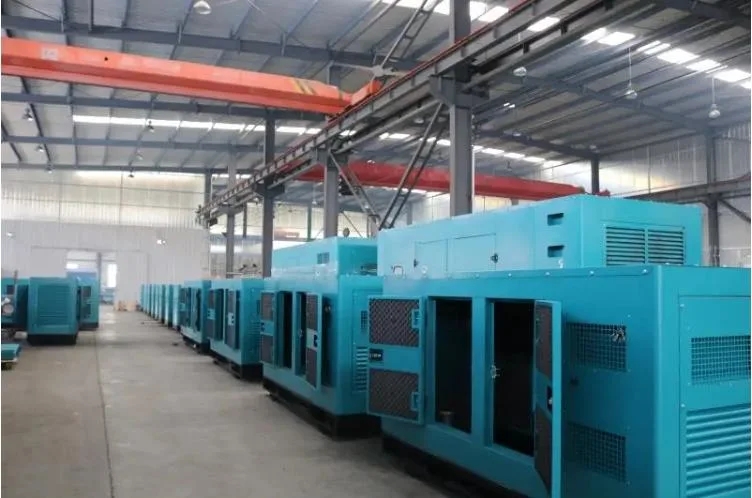Enhancing Power Reliability with Diesel Generators for Parallel Operation with the Grid
Introduction:
Electricity is a crucial part of modern society, powering everything from homes and businesses to hospitals and schools. However, power outages can occur due to various reasons such as severe weather, equipment failure, or grid instability. To ensure a reliable power supply, many facilities rely on backup generators, with diesel generators being a popular choice due to their efficiency and reliability. In recent years, the concept of parallel operation of diesel generators with the grid has gained traction as a way to enhance power reliability and efficiency. This article will explore the benefits, considerations, and best practices of using diesel generators for parallel operation with the grid.
1. Understanding Diesel Generators
Diesel generators are a type of backup power system that uses a diesel engine to generate electricity. They are commonly used in areas where the grid power supply is unreliable or as a backup power source for critical facilities. Diesel generators are known for their durability, efficiency, and ability to provide a steady power supply over an extended period.
2. Parallel Operation with the Grid
Parallel operation refers to the ability to connect multiple power sources, such as diesel generators and the grid, to a common electrical system. In the context of diesel generators, parallel operation with the grid allows for seamless transition between grid power and generator power, ensuring continuity of power supply in case of grid failure. This setup also enables the sharing of the load between the generators and the grid, optimizing the overall power system efficiency.
3. Benefits of Parallel Operation with Diesel Generators
- Enhanced Reliability: By paralleling diesel generators with the grid, facilities can significantly improve their power reliability. In the event of a grid outage, the generators can seamlessly take over the load, preventing downtime and disruptions.
- Improved Efficiency: Parallel operation allows for load sharing between the generators and the grid, optimizing the overall system efficiency. This can result in cost savings and reduced fuel consumption.
- Scalability: Parallel operation with diesel generators provides flexibility in scaling up the power capacity as needed. Additional generators can be easily added to meet increasing power demands.
- Redundancy: Having multiple power sources connected in parallel provides redundancy, ensuring that there is always a backup in case of generator failure or maintenance.
4. Considerations for Parallel Operation
While the benefits of parallel operation with diesel generators are significant, there are several considerations that need to be taken into account to ensure a successful implementation:
- Synchronization: Proper synchronization between the generators and the grid is critical to prevent electrical disturbances and ensure seamless transfer of load. Advanced synchronization controls and monitoring systems are essential for maintaining stability.
- Protection Systems: Robust protection systems are necessary to safeguard the generators, the grid, and the connected loads from overloads, short circuits, and other electrical faults. Proper coordination of protection devices is crucial for safe and reliable operation.
- Control Strategy: A well-defined control strategy is essential for managing the power flow between the generators and the grid. https://www.lkpowerplant.com/400kw/ can monitor and adjust the generator output based on the load demand and grid conditions.
- Compliance with Standards: Adhering to relevant standards and regulations is important when implementing parallel operation with diesel generators. Compliance ensures the safety, reliability, and interoperability of the power system.
5. Best Practices for Parallel Operation
To ensure the successful parallel operation of diesel generators with the grid, the following best practices should be followed:
- Conduct Thorough System Design: A detailed system design that considers the power requirements, load characteristics, and operational constraints is essential for a successful parallel operation setup.
- Perform Regular Maintenance: Regular maintenance of the diesel generators, control systems, and protection devices is crucial for ensuring optimal performance and reliability.
- Training and Education: Proper training for operators and maintenance personnel is essential to ensure that they understand the operational procedures and safety protocols associated with parallel operation.
- Testing and Commissioning: Thorough testing and commissioning of the parallel operation setup are necessary to identify and resolve any issues before the system goes live. Testing should include synchronization, load sharing, and fault response scenarios.
6. Case Studies and Success Stories
Several facilities around the world have successfully implemented parallel operation with diesel generators to enhance their power reliability. Case studies and success stories can provide valuable insights into the benefits and challenges of such setups, as well as best practices for implementation.

Conclusion:
The parallel operation of diesel generators with the grid offers a reliable and efficient solution for ensuring uninterrupted power supply to critical facilities. By leveraging the benefits of parallel operation, facilities can enhance their power reliability, improve efficiency, and achieve scalability and redundancy in their power systems. However, careful consideration of synchronization, protection systems, control strategy, and compliance with standards is essential for a successful implementation. By following best practices and learning from successful case studies, facilities can effectively leverage diesel generators for parallel operation with the grid and ensure a reliable power supply in any situation.